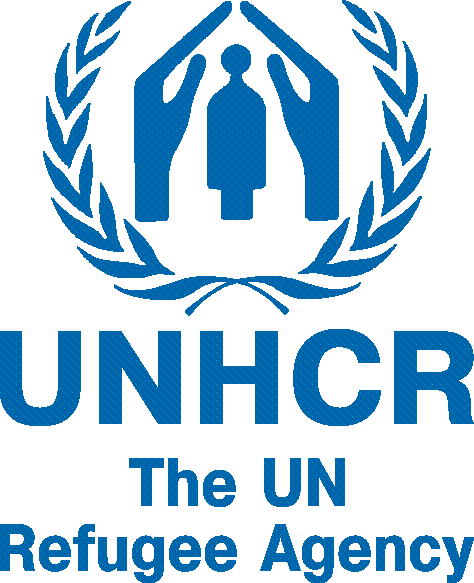
Journal of International Law and International Relations 2014 — N 4
Summaries
International Law
International Private Law
Legal Aspects of the Use of Cloud Technologies — Nadezhda Shakel
International Relations
The European Union Policy towards Post-Soviet States of Eastern Europe in 2004—2014 — Andrei Rusakovich, Pavel Barakhvostov
The Central Asian Vector in People’s Republic of China Foreign Policy in 2001—2013: Criteria for Periodization — Maryia Danilovich
The Position of the Iraqi Government Concerning the Syrian Crisis in the Context of the Independent Foreign Policy of Iraq after 2003 — Ali Osam Abed Ali
Political Relations between the Bolivarian Republic of Venezuela and the Republic of Belarus (1992—2012) — Giojana Ruta
The Evolution of Titles of the Moscow Knyazes in the Practice of Relations with the Countries of Central and Eastern Europe (the Last Quarter of the XV — the First Quarter of the XVI Century) — Yuliya Sitkevich
International Economic Relations
Analysis of the Current State and Trends in the Development of the Market of Leasing SerExternal Migration of the Republic of Belarus Population in 2014: New Factors and Trends — Vladimir Zaharets, Irina Zaharets
Circulation of the Intellectual Capital in the World Labour Market — Marharyta Bondar
Scientific and Methodological Approaches towards the Evaluation of the Regional Tourist Product Competitiveness — Natalia Kazarina
Tourism Forecasting: Classification and Methods Analysis — Nina Generalova
The Agriculture Competitiveness Essence and Factors of its Formation — Aliaksey Borel
A New Approach to the Studies of the Transnational Corporations Activity — Pavel Korzik
FULL ISSUE 
English Summaries
«Legal Aspects of the Use of Cloud Technologies» (Nadezhda Shakel)
The article is devoted to identification of the main legal aspects of the use of cloud technologies, connected with the storage of information obtained through a variety of various digital devices (telephones, tablets, game consoles, etc.) in the so-called «clouds». Based on the analysis of problems connected with a possibility of unauthorized access to the information stored in clouds, its theft, destruction, etc., the author suggests evaluating carefully the provisions of the signed contracts, taking into account the fact that the relations are often aggravated by a foreign element. Several aspects of the development of cloud technologies in Belarus are covered.
«The European Union Policy towards Post-Soviet States of Eastern Europe in 2004—2014» (Andrei Rusakovich, Pavel Barakhvostov)
The paper examines distinctive features of the evolution of the EU’s policy toward post-Soviet states of Eastern Europe in 2004—2014. The authors indicate that the European Neighborhood Policy (ENP) aiming to create a zone of security came into being as a response to the challenges entailed by the EU enlargement in 2004. The paper focuses on the goals set by the ENP (convergence with the EU by means of commitment to European values; development of different forms of cooperation; maintenance of democracy and respect for human rights), as well as on means and methods of achieving them. A significant part of the paper is dedicated to the 2009 Eastern Partnership initiative, seen by the authors as an integral part of the ENP, a new stage of its evolution. The peculiarities of the EU’s association policy towards Ukraine, Moldova, and Georgia are analyzed. The authors assert that the EU’s policy at different stages of its development was aimed at transformation of the East European countries according to the EU’s vision and interests. This policy finds its opponents in the national elites and some other actors of international relations.
«The Central Asian Vector in People’s Republic of China Foreign Policy in 2001—2013: Criteria for Periodization» (Maryia Danilovich)
The present article describes the problem of PRC’s policy evolution in Central Asia since the 2000s until 2013, based on the analysis of its historiography. On the basis of the proposed criteria the author distinguishes the strategic stage, periods and policy shifts of the Central Asian vector in the PRC’s foreign course.
«The Position of the Iraqi Government Concerning the Syrian Crisis in the Context of the Independent Foreign Policy of Iraq after 2003» (Ali Osam Abed Ali)
The article is devoted to the analysis of the position of the Republic of Iraq concerning the Syrian crisis in 2011—2014. An independent nature of the Iraq's foreign policy after 2003, which allowed to create a reasonable, balanced and neutral position on the situation in Syria and propose its own peace initiative is particularly emphasized and reflected in the article. This position highlights Iraq on the background of other countries in the Middle East region. The article examines the constitutional foundations of the Iraqi position, its reasons and activities of Iraq in the Arab League.
«Political Relations between the Bolivarian Republic of Venezuela and the Republic of Belarus (1992—2012)» (Giojana Ruta)
The article examines political relations between the Bolivarian Republic of Venezuela and the Republic of Belarus which were officially launched in 1997. The cooperation between the countries was renewed in 2006 when Hugo Chavez visited the Republic of Belarus for the first time. The goal of his further visits to Belarus was the intention to build a multipolar world, and not only to establish the diplomatic relations with this nation, but also to create deep bonds of friendship. Hugo Chavez followed the mechanisms aimed at receiving mutually beneficial economic advantages as well as acquisition of scientific, technical, cultural and military experience.
«The Evolution of Titles of the Moscow Knyazes in the Practice of Relations with the Countries of Central and Eastern Europe (the Last Quarter of the XV — the First Quarter of the XVI Century)» (Yuliya Sitkevich)
The author of this article analyses the evolution of the titles of Moscow knyazes (princes) in the diplomatic practice of the Moscow state at the end of the XV — beginning of the XVI century. Simultaneously with the title of «great knyaz» two other forms of titles came to be fixed in the diplomatic practice — «Gosudar of all Russia» and «tsar». Great attention is paid to the causes and conditions of the formation of a new title of Moscow knyaz in his relations with the governors of Central and Eastern Europe. The article is mainly focused on the establishing of the used title form’s dependence on the nature of inter-state relations. A significant role is given to the problem of the origin of title forms used in the Moscow state. The appliance of new forms of title was the result of the changes in domestic and foreign policy of the Moscow state. Their use testified to the consolidation of a new status of the Moscow knyaz on the international arena.
«External Migration of the Republic of Belarus Population in 2014: New Factors and Trends» (Vladimir Zaharets, Irina Zaharets)
The article analyzes new factors determining external migration of the Belarusian population. It is noted that significant economic problems are observed in the main countries traditionally attracting Belarusian labour migrants. Accordingly, their attractiveness for the Belarusian labour migration is sharply reduced. At the same time, political and economic processes taking place in Ukraine lead to increased migration from this country to Belarus. The authors propose to create a mechanism for attracting highly qualified labour force, primarily from Ukraine.
«Circulation of the Intellectual Capital in the World Labour Market» (Marharyta Bondar)
The article covers the aspects of the world labour market and circulation of intellectual capital taking into account the influence of the international intellectual migration. The «brain drain» category is analyzed; its internal and external components are distinguished. The main trends of both emigration and immigration of intellectual capital in the Republic of Belarus are identified; several recommendations on attracting the intellectual capital into the country are elaborated.
«Scientific and Methodological Approaches towards the Evaluation of the Regional Tourist Product Competitiveness» (Natalia Kazarina)
The article analyses the main scientific and methodological approaches towards the evaluation of the key factors of the regional tourist product competitiveness and highlights similar features. A system of evaluation indicators ensuring the competitiveness of the regional tourist product with respect to the specificity of a particular area as well as factors contributing to the development of tourism in the area, is developed. The system is demonstrated on the example of Vetka district, Gomel region. The article proposes priority directions to optimize the tourism management system in Vetka district at various hierarchical levels — at the level of the Republic of Belarus, Gomel region and Vetka district. Some indicators for assessing the economic, resource, environmental and information factors in the system of assessment indicators under development are considered.
«Tourism Forecasting: Classification and Methods Analysis» (Nina Generalova)
The major tourism forecasting methods are considered in this article. The author analyses pros and cons of different methods from the practical point of view, taking into account the required resources level, the complexity of use, reliability and precision of the data forecast. Quantitative and qualitative groups of methods are classified. The author gives practical recommendations on selection and use of methods. Besides, the article contains the review of key economic factors of tourism development in the world as well as in Belarus.
«The Agriculture Competitiveness Essence and Factors of its Formation» (Aliaksey Borel)
The growth in the number of the world population and improvement of the living standards result in an inevitable growth of demand for food supplies, formed in the conditions of limited quantity of land and other sources to produce food. In this connection, raising of agricultural competitiveness for the most efficient meeting of increasing needs in the food production is of particular relevance. Different approaches towards identification of competitiveness in the agricultural sector and its indicators are considered in the article. Contemporary trends in the development of agriculture are analyzed; the author’s classification of competitiveness forming factors is elaborated.
«A New Approach to the Studies of the Transnational Corporations Activity» (Pavel Korzik)
The article aims to develop a new approach to studying TNCs and their interaction with national economies. A review of theoretical literature on the subject provided no viable universal model of TNC development. The suggested approach employs local conditions and motives as key factors in explaining TNC activities. The approach also permits universal usage of different TNC theories to explain the internationalization decision as well as the choice of the foreign markets mode of entry.



